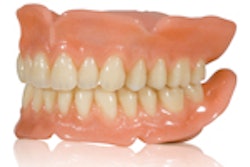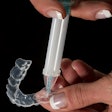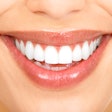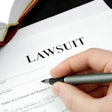
A federal judge has ruled that Merck must now pay only $1.5 million in compensatory damages to Shirley Boles, a 72-year-old woman who claimed the company's bisphosphonate drug Fosamax caused her to develop osteonecrosis of the jaw (ONJ) and related dental problems.
Boles' original lawsuit ended in a mistrial in September 2009, but in a retrial in June of this year, a New York jury found in favor of Boles, calling Fosamax "defectively designed" and "unreasonably dangerous," according to news reports. Merck was ordered to pay $8 million in compensatory damages.
In reviewing the case, however, Judge John Keenan of the U.S. District Court of the Southern District of New York ruled on October 4 that the $8 million verdict was excessive. "A significant damage award is warranted, but the $8 million deviates substantially from what would be reasonable compensation," he wrote.
No new trial
But the judge denied Merck's request for a new trial, prompting Merck to reiterate in a press release that it will "vigorously defend against plaintiff's claims on appeal." The company had argued that the behavior of one of Boles' lawyers, Gary Douglas, was so outrageous that a new trial was required.
"Mr. Douglas delivered his argument in an agitated tone, scuttling about the well of the courtroom, oddly gesturing, singing, and laughing, a style that may best be described as manic," Keenan wrote.
Keenan, who also referred to Douglas' "often unintelligible rambling" and said his behavior at the trial "fell far shy of the standards for professional conduct," said he didn't believe a new trial was warranted. Instead, Keenan fined Douglas $2,500.
"We believe the verdict was contrary to the evidence presented at trial and influenced by plaintiff's counsel's inflammatory and prejudicial remarks," said Paul Strain of Venable, outside counsel for Merck, in the press release. "The plaintiff was at increased risk for dental and jaw problems regardless of her Fosamax use."
Boles had alleged that she used Fosamax from 1997 to 2006 and suffered various jaw problems and complications following two tooth extractions in June 2002, including a several-day hospitalization in 2004 to treat her condition. During her trial, Merck produced evidence showing that the plaintiff had medical problems that cause people to develop jaw problems, regardless of whether they are taking Fosamax.
"We continue to believe that both the finding and the amount of compensatory damages are against the weight of the evidence," said Bruce Kuhlik, executive vice president and general counsel of Merck. "We also believe the evidence showed that Fosamax did not cause the plaintiff's injury and that it is a safe and effective medication that was properly designed. While this is not the outcome that we hoped for at the trial court level, we will vigorously pursue an appeal in this matter and we remain fully committed to defending these cases."
Merck is currently facing more than 1,000 similar lawsuits. The first case to be tried, Maley v. Merck, resulted in a defense verdict for Merck on May 5, 2010. The next federal multidistrict litigation case selected for trial, Graves v. Merck, is scheduled to begin on October 28, 2010.
Copyright © 2010 DrBicuspid.com



















